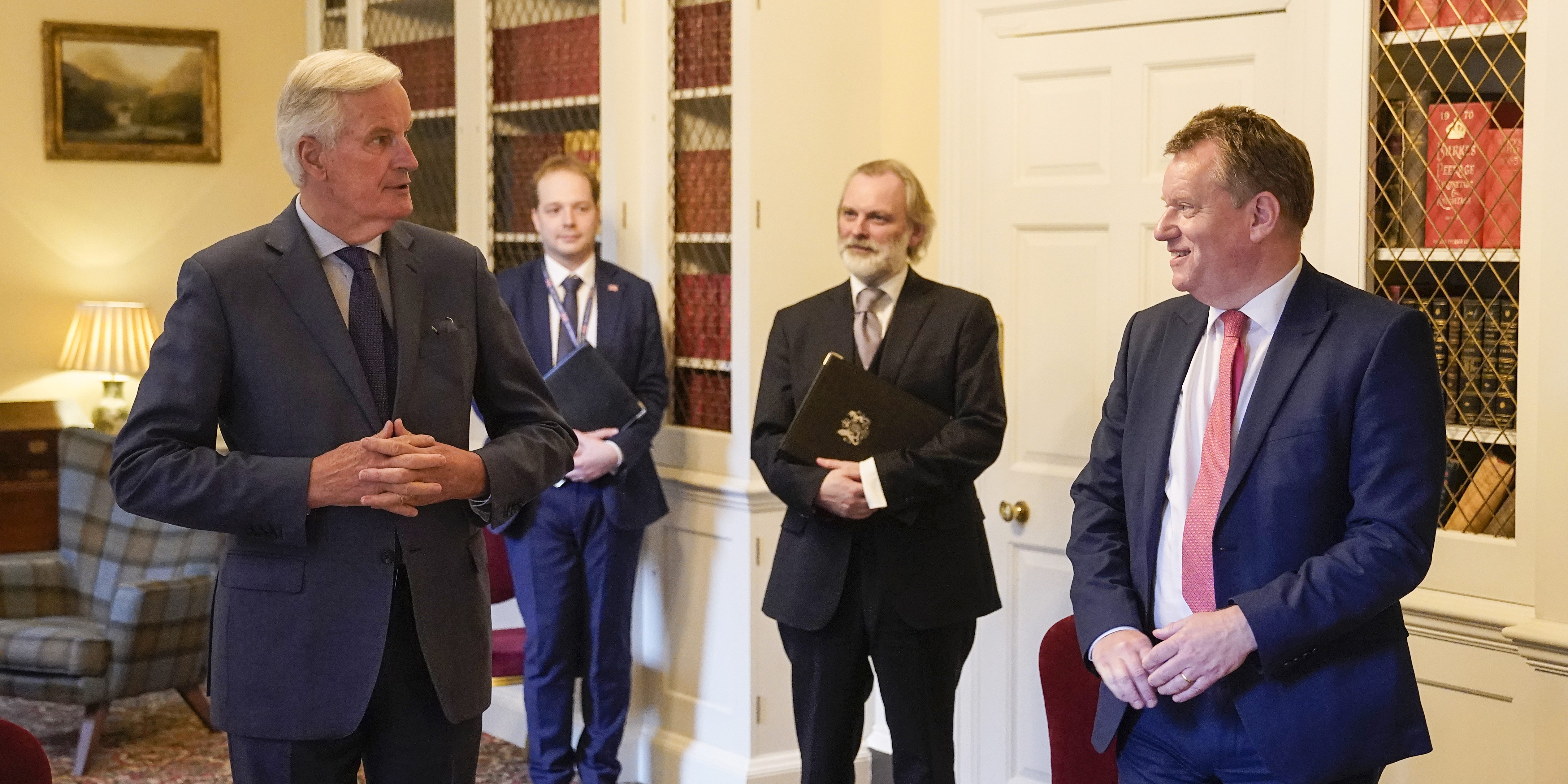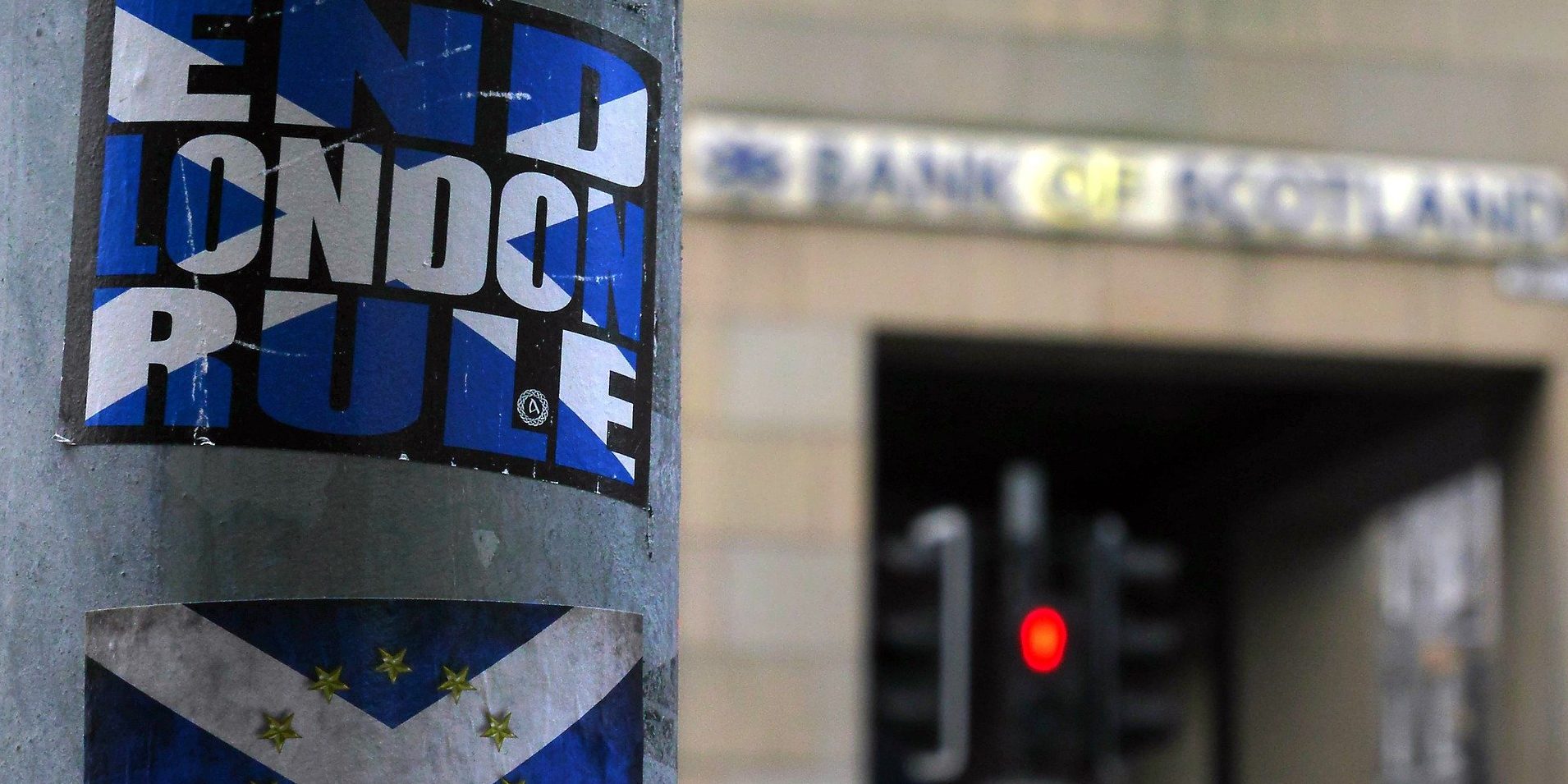We are in for a long, bumpy, and, potentially, dangerous ride as the UK and EU work out how to live next to each other in a post-Brexit world. Successfully forging a new relationship in the crucible of Northern Ireland requires the EU to trust the UK, argues Sydney Nash. This is because the Protocol on Ireland/Northern Ireland demands cooperation, he underlines.
There are four fundamentals to keep in mind when considering how this relationship might develop:
- All roads lead to the border. This was true at every critical moment during the negotiations and will continue to be the case as the new relationship develops.
- The only objectives that matter are defending sovereignty (UK) and defending the single market (EU). Almost all disputes will be a variation of the UK resisting what it perceives as encroachments on its sovereignty, and the EU resisting what it perceives as the UK seeking unfair access to the single market.
- The UK’s current government has no interest in having a good relationship with the EU. While Prime Minister Boris Johnson may talk of “European friends”, actions speak louder than words, and these demonstrate that the government is comfortable with, feels that it is necessary to, and/or is actively pursuing a combative relationship with the EU.
- Neither side trusts the other.

- Image by Numer 10, (CC BY-NC-ND 2.0).
When these are taken into account, it is hard to imagine a world where the UK and the EU will quietly work together to repair relations, build trust, and implement the agreements that they have signed. So those hoping for a quiet life are going to be disappointed. There are going to be many moments when the UK and the EU will fall out, and more often than not, they are going to fall out over Northern Ireland. Managing what happens in Northern Ireland is one of the few areas of the UK/EU agreements (beyond broad implementation) where there is shared responsibility. Much of the rest of the relationship is set up to be transactional, but the Protocol on Ireland/Northern Ireland (the Protocol) demands cooperation. It is in the context of Northern Ireland that the new UK/EU relationship will be forged, and their ability to live with each other truly tested.
What is concerning is that we appear to be in a vicious cycle where an absence of trust encourages a combative approach, and that combative approach helps undermine trust. All that is then left is the UK and EU’s contrasting priorities clashing within the crucible of Northern Ireland. What might make matters worse, is if the application of these priorities, particularly by the UK, becomes more absolute (the EU’s position is already fairly absolute). It is only in the context of the Protocol that the UK made a significant break with its desire to defend its sovereignty at all costs. Unlike in Great Britain, EU rules (some, not all), still apply in Northern Ireland. This was a price this government was willing to pay in 2019 to break the impasse in the negotiations and win an election; but its actions since would suggest that it wants a refund.
If the government decides that the Brexit it agreed is, in fact, intolerable because part of the UK remains subject to EU rules, and that it will do whatever is necessary to address this, it is left with three options:
- Rip up the Withdrawal Agreement, including the Protocol, and unilaterally erect a border on the island of Ireland.
- Allow Northern Ireland to exit the UK.
- Renegotiate key elements of the Protocol.
Options one and two come with significant risks. Option three is extremely difficult but is by far the most palatable if the government really cannot live with the Protocol as it stands. However, if renegotiation is what the government wants, then it needs to go back to the fundamentals of its relationship with the EU and change the ones that are in its control. Specifically, it must address the lack of trust in the relationship. It can do this, in part, by dialling down its combative approach. It can also build trust by doing all it can to implement the Protocol as it stands.
Unless the government demonstrates that it wants to make the new arrangements for Northern Ireland work, not just wreck them, the EU will never be able to trust it. If the government does this and it is clear that the Protocol does not work, then it can justifiably ask that a discussion begins about changing it. And, if sufficient trust has been built up, the EU might be willing, not only to have that conversation but to take a less absolutist view of its own priorities if it concludes that that is what is necessary to create a sustainable framework for future relations.
Ultimately, all roads will continue to lead to the border, and contrasting priorities will always result in the UK and EU clashing on occasion, but it is still within the government’s gift to make the ride we are on less bumpy and less dangerous.
This post represents the views of the author(s) and not those of the Brexit blog, nor of the LSE.







Amazed you can write such an article without mentioning the zeroth fundamental. The Good Friday Agreement.
There will be no border on Ireland. If the UK tries to force one, it’s likely to find other borders closing that it really wants to be open. Johnson is both playing with fire and playing a losing hand.
H
Option 2 is probably the easiest for this government. It is also the best solution, and is in any case inevitable within the next ten/twenty years.
I am a retired officer, and policy analyst. I spent 16 years on the border.
The author is naive in the approach taken (& in common with many of the authors here). To comment, HMG (not the UK) representing, fails the trust test, both in modern times, and historically. The histories of UK/England’s rekai with Ireland, Spain, Malta, Cyprus, Germany, France, NL, don’t need recalling here, but do influence opinions in those States.
These influence trust, inter partes, as it’s merely the likelihood of future behaviour (see history above).
To come to the main items I’ve the article
Rip up the Withdrawal Agreement, including the Protocol, and unilaterally erect a border on the island of Ireland.
HMG can rip up the WA & protocol, but is incapable of erecting a border – before the Belfast/GF aggt. HMG had no fiscal border, relying on RoI goodwill to certify export, advise of imports.
The integrity of the island was compromised by lack of controls which allowed an outbreak of Foot & Mouth disease, from GB.
HMG no longer has the troops available to ensure the ‘Queen’s peace’, in the North West UK.
Allow Northern Ireland to exit the UK.
Plugging this into an article in the LSE, is risabke – an international agreement (Belfast )GF) controls this option
Renegotiate key elements of the Protocol.
Trust – not available, the provisions of Art. 16, and it’s addenda would have to be shown to have failed. (Read, or watch the FT video on YouTube to have it explained).
Overall, the complaints regarding NI & the protocol, do not stand up. Tesco / Sainsbury have shortages on GB, there are less items missing in the German & RoI owned supermarkets operating in NI. There are shortages in the RoI supermarkets (Tesco, Dunnes, etc as a result of Brexit.
Both sides need to see statistically what the issues are, is it the old protagonists pressuring for a return to violence, for violence ends – resumption of the war, is very profitable for both politicians and criminals.
There is a particular issue here which I don’t think the article recognises.
During the Brexit negotiations the UK argued that since it was already fully aligned to EU regulations then it should expect to receive access to EU markets which was at least as good as any other third country receives. The EU argued that since the UK was more geographically proximate to the EU, it could not expect the same level of access as countries that are situated further away. In the end a position was negotiated which, I imagine is interim between the ‘best of access’ advocated by the UK ‘the specific to UK access’ advocated by the EU.
In general terms, the final outcome is what it is. But in terms of Northern Ireland’ it is unbalanced. It is all very well for the EU to apply specific conditions to the UK because of its close proximity to the EU but it is totally unacceptable that the same logic should apply to internal UK transfers between the UK mainland and Northern Ireland. So, for example, if I understand things correctly, it is easier for New Zealand to export lamb to the EU than it is for the UK mainland to export lamb to Northern Ireland. The proper resolution of this issue should be that UK mainland exports to Northern Ireland should be on a ‘best of access’ basis. Additional procedures should then be introduced where necessary to ensure conformance to the standards of the Brexit agreement. These might for, example, take the form of additional random checks by EU inspectors (funded by the UK if necessary). I cannot see the situation resolving itself any other way.
My previous comment could have been worded better.
Perhaps “Additional procedures should then be introduced where necessary to ensure conformance to the standards of the Brexit agreement”, should read “”Additional procedures should then be introduced where necessary to ensure conformance to the standards of the Brexit agreement for trading with EU countries”.